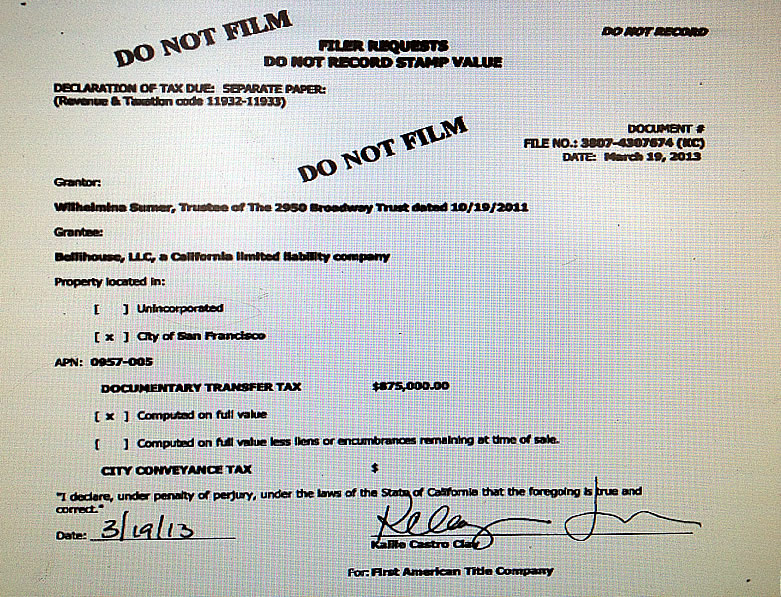
Under the new enhanced Ellis Act relocation assistance payment law passed by the Board of Supervisors last month, a landlord seeking to withdraw rental units from the rental market must pay up to $50,000, per rental unit, based on the “market rate differential” that the displaced tenant faces on the open rental market.
To determine this number, the new law requires the City Controller to provide market rate data for studios, one-bedrooms, two-bedrooms and three-bedroom apartments. This number, minus the tenant’s rent, times 24 months is the new “relocation payment”.
A previous attempt by the Board of Supervisors to require that landlord’s pay two years worth of rent subsidy was overturned last October in Levin v. CCSF. In an apparent effort to address the concerns of Judge Breyer, the Board of Supervisors capped the new relocation payment (which, under the previous version, could have easily been six-figures) at $50,000, and they require that a tenant provide their landlord with a signed declaration where they promise to use the funds for housing after they’re displaced.
The new law came online on June 14, 2015, and it required the Controller and the Rent Board to produce market data and the Declaration form, respectively, by June 19, 2015. While the Rent Board’s official position at the beginning of last week is that the City was not required to comply with the law, pending its appeal of Levin v. CCSF, it released this statement on Friday, in time to provide the necessary documents and data.
However, they are offered “for informational purposes only”. While there wasn’t a Schoolhouse Rock episode specifically about what happens when your city legislature passes a sequel to a law under review by the 9th Circuit, the subtext here seems to be that a landlord should comply anyway, unless and until the new law is also successfully challenged in the judicial branch.










